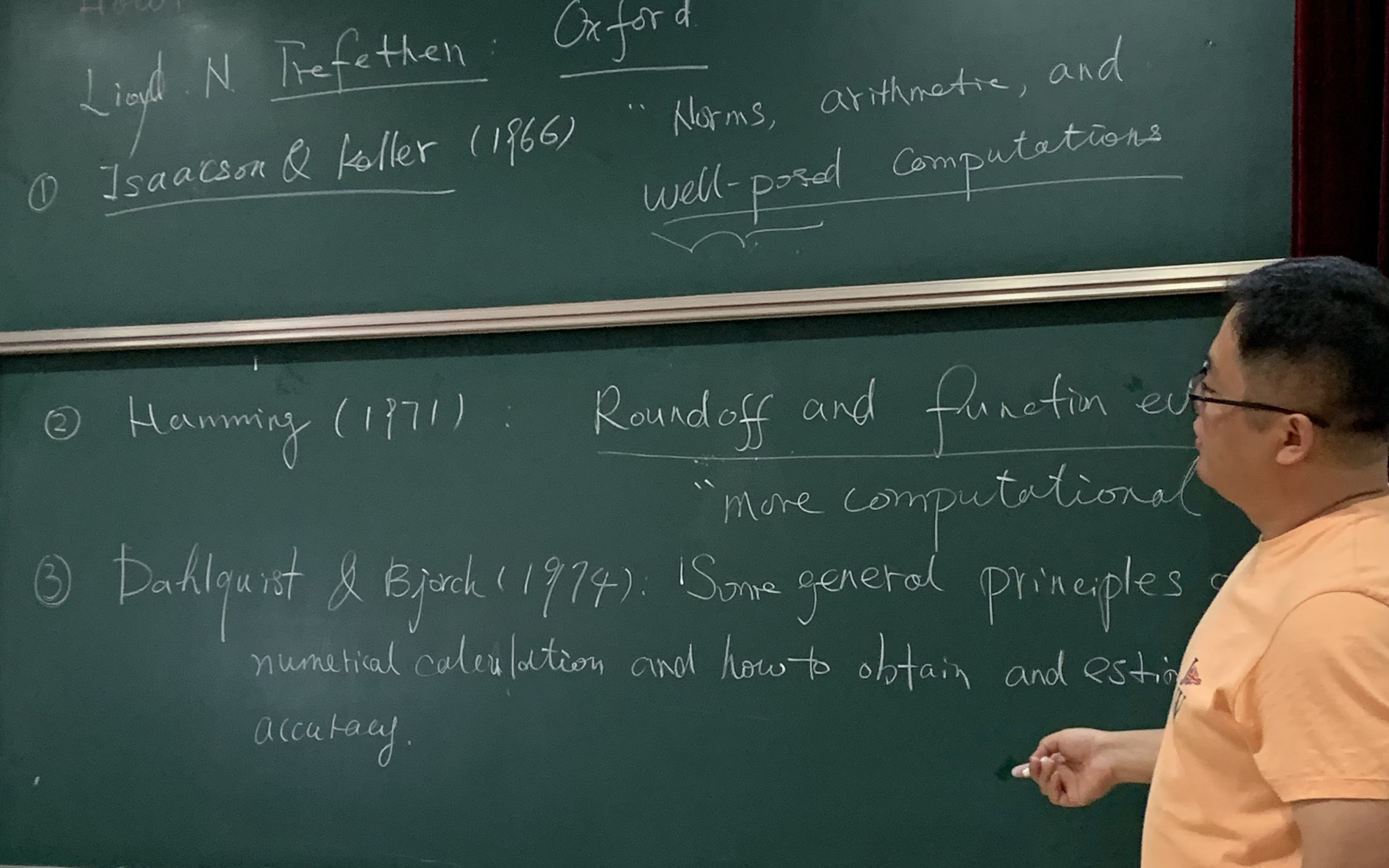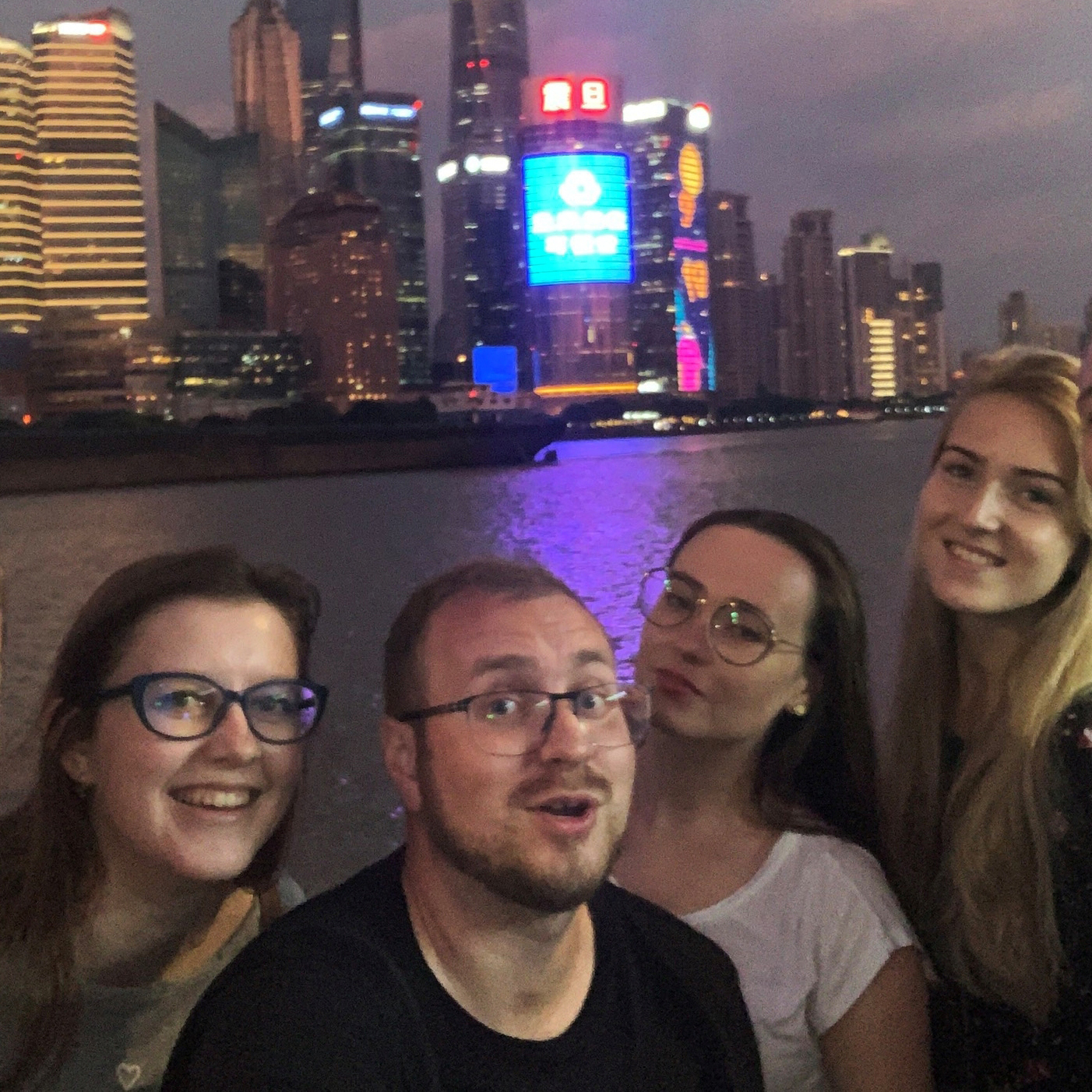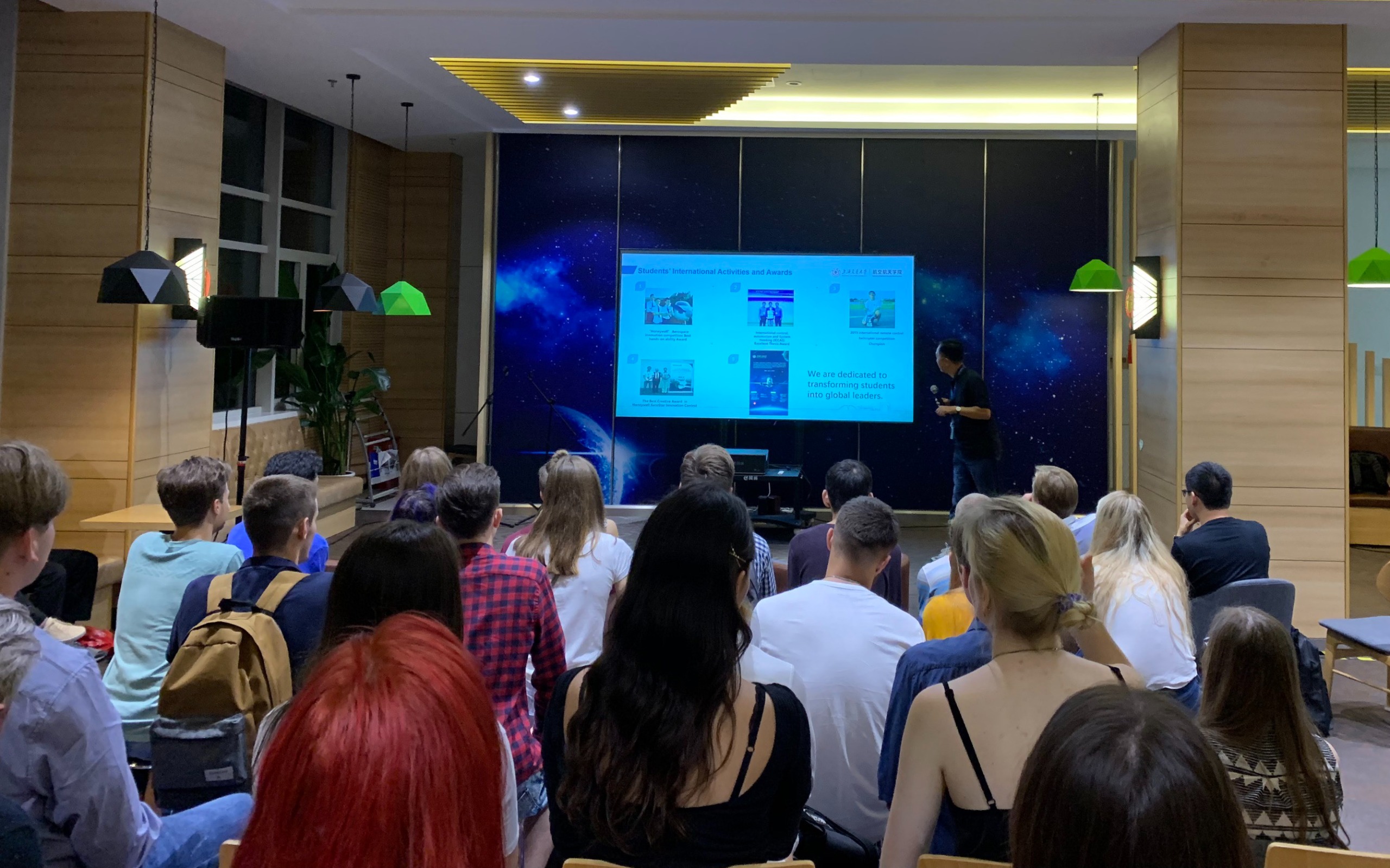“I stepped out of my comfort zone” – MAI-SJTU student tells about his studies in China

The employee of the Kamensk-Ural Foundry, Evgeny Maslennikov, the economist by education, with a stable job, experience, solid earnings and authority among colleagues, decided to change his life drastically and become a student again two years ago. He enrolled in a joint master's program at Shanghai Jiao Tong University (SJTU) and Moscow Aviation Institute. What happened next, Evgeny told us in the interview.
How did the decision come about such a sharp turn in the biography?
I saw the message about the recruitment of those willing to study in China in our corporate mail. I wanted to test myself. Although the decision was difficult. Many things in life were no longer easy to change. And changes were needed for my professional and personal growth. I realized that I would come back as a different person, the perception of the world would change. Actually, that's how it happened.
What surprised you the most about China?
The very first thing was the weather. We, a group of Russian students, arrived to Shanghai in September. It was cold then, and there it was +35 C. At the airport, students, not the representatives of the administration of the University, met us. In a word, everything was different. At the same time, the company of Russians is very, very different, many graduated from Moscow Aviation Institute, they are from 23 to 25 years old, and you are 30... As they say, you left your comfort zone.

If you compare studies here and there...
These are incomparable things. Even starting with the appearance of the educational institution. The territory of Moscow State University, for example, seems tiny if compared to the SJTU campus. What is the difference between the Russian school of education in the magistracy and the Chinese? We are given more applied knowledge, and there – theoretical. There is a huge emphasis on mathematics, numerical methods.
What subjects seemed to be most interesting to you?
The life cycle of the product (with aviation specialization). We considered software for solving these problems using Siemens as the example. As a result, we saw clearly what the interaction between people should be like, what it should be between processes and programs. I am also interested in the Engineering Design, where they showed us how to create a product from scratch, why one idea is worth your attention and another is not, which of them will allow the company to be among the market leaders and which one needs to be worked on to get the best result.
Is this what you are currently doing at work, introducing a program into production to automate all stages of the production process?
Production is just one of the elements. Product life cycle is a broader concept. It starts with an idea, market analysis, design, goes through the production stage and ends with the disposal of the product. Why did MAI launch this educational program together with China? Because there are few experts in this area in our country. It is necessary to form a personnel reserve for the Russian-Chinese project of the CR929 long-range aircraft and not only for it, but also for other joint and domestic projects in the aircraft industry.
Evgeny, how are the lectures perceived, that are given at SJTU in English?
During the first month you don't really understand anything. At first, you perceive the speech of the teacher only for 5 minutes. Later, you begin to selectively snatch out certain words. It helps that there is a brief summary of the lecture in the form of a presentation on the screen. Many teachers send them in advance, which makes it possible to translate using various gadgets. The destruction of the language barrier occurs after about six months, for someone earlier, if they practice communication with foreigners, for others later. Then you are no longer afraid to speak, when they ask you a question. There is a feeling that you have a bag in your head with words that you have been saving for a long time.
What are other peculiarities of the educational process? Different approach, mentality?
Teachers and administration representatives differ from ours, they are stubborn and do not like to be responsible for solving organizational issues, often shifting it to us. MAI Directorate helped us with some issues, with others we had to deal on our own. I would like to note the high level of education as the advantage. Many teachers in our discipline studied, and someone gave lectures, in US universities. They provide only fresh, up-to-date information received no more than three years ago. Classes are built not only in pairs – two 45-minute lessons each – but also three. And if it seemed hard for us, undergraduates, who already had one higher education, then the bachelors suffered. They literally live at the institute, because their lectures begin at 9 A.M. and often end at 6-7 P.M.
And how are the exams? Is it possible to cheat?
Exams are mostly carried out in written form. It's almost impossible to write off. In addition to the teacher, four observers walk around the audience. The approach is tough: if one came to study – go on then. Imagine, there are over 1.5 billion of Chinese, and the territory and jobs are limited. And if you want a place in the sun, go get it. If you don't want to learn, sell slippers. Therefore, it is serious.
Are you saying that there are no slobs among Chinese students?
There are some. But the hard-working industrious people are the vast majority. For example, they will not skip lectures. Here in Russia the “last Chinese warning” does not work. And there it hits right away: if you skipped or got poor grades, or had a fight, or did something else, then you receive a notice. The first notice, the second notice, and after the third – you are expelled. Even being late can be equated to missing the lecture. One example: before the start of the lecture, each student writes his last name on the board, the teacher or assistant takes a photograph of the list, and then erases it. And everyone who came later are not included into the number of those who attended the lesson.

Tell us about the daily routine of Chinese students.
They always get up very early: at 6-7 in the morning, no matter what time the lecture is, even if it is at 11. Therefore, at 9 P.M. it is already night for them. And at 8-9 we just sat down to do general educational work. Had some tea or coffee and actually sat there until the morning. I managed to sleep for a couple of hours before classes.
Are Chinese sociable?
They are not very sociable as far as the joint work is concerned. Very rarely I watched them prepare for classes together. This is due to the fact that, I repeat, there are 1.5 billion people there. And there are very few excellent high-paying promising jobs. Therefore, there are no special friends, study colleagues, there are conditional acquaintances who are potential competitors. For example, when we needed help to understand the numerical methods, they were very reluctant to share knowledge. And now at the Moscow Aviation Institute we solve practical problems of certification of aviation products. And now the Chinese are turning to us for help. They got the necessity of such communication.
What did you miss the most in China?
Normal food. The salt there tastes so, so to say “chemical”, that it is hardly possible to eat it. Later we found the substitute for it. All dishes are very spicy, even for me, the one who loves spicy food, it was too much. And the lack of normal meat. You can buy it raw and cook, of course. But the already cooked one, most likely, will be sweet. There are no usual sauces and dressings, no sausage (it also has a sweet aftertaste). Shanghai was a port city, and therefore a rich one. And sugar at that time was considered to be a sign of prosperity. And they still use it. Milk and cottage cheese are not the same as we have, and even yogurts. There are Russian cuisine cafes, but they are either far or expensive. And only some time later we learned about the Taobao online store, where you can buy literally anything. And before that, the Uighur cuisine was the option for us. The Uighurs – such nation lives in China, they are Chinese Muslims (ancient Turkic-speaking people from East Turkestan – ed.). Their dishes are closer to Central Asian ones, to pilaf, dumplings, and normal salt.
What conclusion can be drawn after a year of living and studying in Shanghai?
You gain the experience, that I think would be useful to everyone. Life abroad takes you out of your comfort zone, immerses you in a strange, incomprehensible environment. But then you get used to it. At first, many things seem impossible, such as the amount of the work required. And then you just do it.
And what changed in your main job, at the foundry?
First of all, the approach to work changed. I think that it was due to the knowledge gained in the master's program that the solution of organizational problems of production at the plant moved to a new level. All the weak links in the chain of command began to glow red, and my colleagues and I began to work on them more consciously. It was as if we opened our eyes to the problems of business process transparency and to the fact that by expanding the information base, using new technologies, it is possible to achieve the required indicators more efficiently.
Were there any career changes?
To be honest, initially it was not very interesting for me to work at the enterprise, and even thoughts often appeared that it was time to leave and go somewhere else. But after studying in China, I returned to work with new knowledge and new experience. For a year and a half, I took some lumps in order to get some decent result. Perhaps I could have achieved the same earlier, but there was no understanding of how to do it, and, more importantly, there was no interest.
Now I got the position of the project manager – this is a kind of link between the top management, department heads and their subordinates. Our team has set up a logical distribution of costs for products and production, which helps to analyze the market and predict results. This system helps to identify economic, production errors in order to prevent them in the future.
If you were offered to study again, would you…?
Then I would gladly continue.